Early 2016 conference

Feed · love · grow
March - May 2016
Our 8th online breastfeeding conference
More Rock Stars of Lactation™ presented at our eighth online breastfeeding conference, Feed · love · grow. This was held online from March to May 2016 and had participants from over 60 countries. The conference is now closed and the presentations are no longer available. You can still read the topic introductions and more background about the speakers. Thank you for your interest!

Human milk, just another primate milk?
Pascal Gagneux, PhD - Read moreHuman milk, just another primate milk?
Pascal Gagneux, PhD
Dr Pascal Gagneux is a Swiss/American evolutionary biologist who studies the role of sugar molecules for infection and reproduction (life is sexually transmitted!). Dr Gagneux started his scientific career studying mother-infant interactions in wild chimpanzees in West Africa. He then studied genetics of wild chimpanzees and humans and embarked on comparative glycobiology (the biology of sugars) in humans and their closest evolutionary relatives, the “great apes”. Dr Gagneux heads a research laboratory investigating how sugars affect infection and fertility.
Human milk, just another primate milk?
Like all mammals, primate mothers feed their newborns with a rich secretion (modified sweat) containing fats, proteins and lots of sugar molecules. These include the disaccharide lactose and hundreds of additional oligosaccharides (short sugar chains). Great apes and humans share relatively helpless infants and long lactation. This presentation discussed the deep roots of mammals’ lactation, the patterns of lactation in non-human primates and the possible consequences for mother and child of a recent large scale evolutionary experiment: the replacement of mother’s milk with industrially produced formula based on cow’s milk.
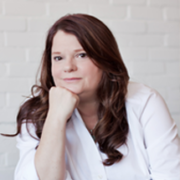
Breastfeeding by numbers – when is it useful? Mother and infant assessment, test weights, and infant intake calculations
Barbara D Robertson, BA, MA, IBCLC, LLLL - Read moreBreastfeeding by numbers – when is it useful? Mother and infant assessment, test weights, and infant intake calculations
Barbara D Robertson, BA, MA, IBCLC, LLLL
Barbara D Robertson has been involved in education for over 27 years. She received a Bachelor’s degree in Elementary Education in 1988 and her Master’s in Education in 1995. Barbara left teaching elementary students in 1995 to raise her two children. Her children spurred her to become involved in La Leche League and, in 1998 she became a La Leche Leader. She enjoyed this work so much that she decided to sit for the International Lactation Consultant Exam and became a board certified lactation consultant. Barbara is the Director of The Breastfeeding Center of Ann Arbor. She teaches breastfeeding classes for parents, runs support groups, trains professionals, and is in private practice as a lactation consultant. Barbara has developed a 90 hour professional lactation training and a 20 hour course which fulfills the “Baby Friendly” education requirements. Barbara volunteered for the United States Lactation Consultation Association as the Director of Professional Development for 4.5 years. Her responsibilities include coordinating educational opportunities for IBCLCs across the country. Barbara is currently an Associate Editor for Clinical Lactation, a journal she helped create for USLCA. Barbara has also developed a new working and breastfeeding phone app, iLactate. She loves working with mothers and babies, helping them with breastfeeding problems in whatever way she can.
Breastfeeding by numbers – when is it useful? Mother and infant assessment, test weights, and infant intake calculations
This presentation reviewed the elements needed for a comprehensive mother and baby physical assessment. This also included the mother’s health history, breast, and nipples and the baby’s health history, feeding history, and physical exam. Pre- and post-test weights were discussed and demonstrated. Infant feeding calculations were reviewed in context with the information that has been gathered through assessment.
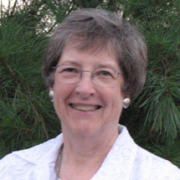
Obesity and breastfeeding
Kay Hoover, MEd, IBCLC, RLC, FILCA - Read moreObesity and breastfeeding
Kay Hoover, MEd, IBCLC, RLC, FILCA
Kay Hoover has been assisting breastfeeding mothers and their babies in a variety of settings and capacities for over 30 years. She began working as a lactation consultant in private practice in 1985. She has also worked in hospital settings, not only as a provider of lactation services to postpartum mothers and their babies, but also as a trainer and educator for hospital nurses. In addition to her work with hospital staff, she has educated maternal and child health workers through her job with the Philadelphia Department of Public Health, taught prenatal breastfeeding classes to pregnant families in various settings and college courses at the Pennsylvania State University. Most recently she designed and taught a lactation consultant training program for aspiring lactation consultants. Kay has authored several articles and book chapters, and she co-authored The Breastfeeding Atlas. Kay has lectured widely, at both national and international conferences. She also served on the board of the International Board of Lactation Consultant Examiners for six years. She and her husband, Charlie, are the parents of three breastfed sons and have three breastfed grandsons.
Obesity and breastfeeding
The presentation covered the health impact of obesity in relation to pregnancy and lactation, barriers to breastfeeding for obese women, and strategies to help obese women with their anatomical challenges.
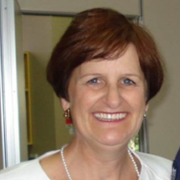
Clinical skills – tips and techniques, working with larger-breasted women to support breastfeeding
Decalie Brown, RN, CM, CFHN, BHmtg, IBCLC, FILCA - Read moreClinical skills – tips and techniques, working with larger-breasted women to support breastfeeding
Decalie Brown, RN, CM, CFHN, BHmtg, IBCLC, FILCA
Decalie Brown is a registered nurse/midwife with over 35 years of experience and an IBCLC working in a clinical role within Primary Care and Community Health as a Child & Family Health Clinical Nurse Specialist 2 in a busy community of the Blue Mountains, NSW Australia. She supports health professionals and parents with education of lactation/infant feeding/settling and behavioural issues for infants and children 0 to 5 years of age. A current BFHI Educator and Assessor, working toward BFHI in her own local community, she has shared her extensive clinical experience in workshops at conferences over recent years. Decalie most recently served as the International Lactation Consultant Association (ILCA) Director of Marketing for two terms and is the current President of ILCA through till July 2016 and she is a new FILCA.
Clinical skills – tips and techniques, working with larger-breasted women to support breastfeeding
Breastfeeding has many challenges and especially for mothers who are larger breasted. This practical presentation explored the unique challenges and outlines the sometime difficulties for these mother and babies. There were tips and techniques to assist the larger breasted mothers to achieve their breastfeeding goals.
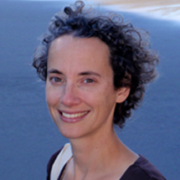
Gadgets and goo: things we put on our nipples and what they do
Ellen J Rubin MA, IBCLC, LLLL - Read moreGadgets and goo: things we put on our nipples and what they do
Ellen J Rubin MA, IBCLC, LLLL
With a master’s degree in counseling, Ellen Rubin was first employed as a perinatal social service provider, coordinating a mentoring program for pregnant teenagers. After taking time off to have her own children, Ellen attributed her own positive breastfeeding experiences to the expert assistance she received from La Leche League and lactation consultants. This assistance was instrumental in her decision to become a LLL Leader and to earn her certification as a lactation consultant. She is currently employed as an IBCLC at the Breastfeeding Center of Pittsburgh and continues to volunteer as a LLL Leader.
Gadgets and goo: things we put on our nipples and what they do
While breastfeeding is touted as completely natural, frequently gadgets and creams are implemented to address latch, pain, anatomy, and milk transfer. This presentation reviewed several of these interventions used by lactation professionals and the situations in which they both facilitate and hinder successful breastfeeding.
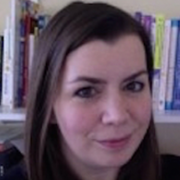
Milk supply and breastfeeding decisions: how psychosocial factors damage breastfeeding
Amy Brown, PhD - Read moreMilk supply and breastfeeding decisions: how psychosocial factors damage breastfeeding
Amy Brown, PhD
Dr Amy Brown is an Associate Professor in the Department of Public Health at Swansea University where she leads the MSc in Child Public Health. With a background in Psychology, Dr Brown gained her PhD in 2010, exploring the importance of baby-led breastfeeding. Since then her research has continued to examine influences on breastfeeding and introducing solid foods and has published over 40 academic papers exploring how new mothers can best be supported at this time. She has a particular interest in understanding how psychological, social and cultural pressures interfere with responsive feeding both during breastfeeding and introduction to solid foods, and how we can challenge these ideas. Her forthcoming Book Breastfeeding Uncovered explores and calls for public action on this issue.
Milk supply and breastfeeding decisions: how psychosocial factors damage breastfeeding
Despite a rise in the number of new mothers initiating breastfeeding at birth, continuation rates across most of the Western world remain low, with many new mothers stopping breastfeeding before they are ready. Many cite ‘not enough milk’ as a key reason for stopping, but is this true? Do large numbers of mothers not produce enough milk? Physiologically, if the baby is latched on effectively, and fed frequently according to infant demand (including throughout the day and night with no breast milk substitutes), then over 98% of mothers should be able to produce sufficient milk for their baby. However, numerous psychological, social and cultural variables affect whether a baby is fed on demand. This talk identified these factors and explore how they damage milk supply and ultimately lead to babies not being breastfed.
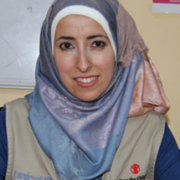
Breastfeeding in refugee camps
Sura Al.Samman, BSc - Read moreBreastfeeding in refugee camps
Sura Al.Samman, BSc
Sura Al.Samman is the health and nutrition manager at Save the Children Jordan, responsible for the overall coordination of the Infant and Young Child Feeding (IYCF) technical functions and activities in camps and south of Jordan including components such as Supplementary Feeding Programs (SFP) and anemia. After graduating from Jordan University with a BSc in Nutrition and Food Technology she worked in different programs related to maternal and child nutrition.
Breastfeeding in refugee camps
This presentation presented the different activities that Save the Children Jordan are conducting, both as an emergency intervention in Syrian refugee camps and later scaling up as a developmental program to improve infant and young child feeding (IYCF) indicators on a national level. It will highlighted key challenges faced through the early days of the emergency and the importance of coordination and advocacy in prioritizing IYCF and breastfeeding.

Breastfeeding experience in Haiti
Rose Mireille Exumé, IBCLC, CLC, ALC - Read moreBreastfeeding experience in Haiti
Rose Mireille Exumé, IBCLC, CLC, ALC
Rose Mireille Exumé completed a bachelor degree in Administration. She mostly worked in education and developed specific interest for breastfeeding, young child nutrition and childbirth education. She successively worked as consultant in health worker training for AED/Linkages and country coordinator for USAID’s Infant and Young Child Nutrition (IYCN) project. She became a certified lactation counselor in 2005, then International board of Certified Lactation Consultant (IBCLC), and Advanced Lactation Consultant (ALC). She is currently completing a Master in Public Health. Rose Mireille successfully breastfed her seven children. Since 1993, she is, with other educators and health professionals, founder member of the Center for Breastfeeding Promotion (CEPAM). Rose Mireille is passionate for life, birth, breastfeedi
Breastfeeding experience in Haiti
Breastfeeding has always been part of our culture in Haiti as proven by this well-known saying: “If mother can’t breastfeed, grandmother will”. For many years now, breastfeeding has experienced ups and downs resulting in high levels of malnutrition. During this presentation, we explored briefly the context of breastfeeding, the various difficulties and challenges faced. And also highlighted the efforts and determination of those who believe in the virtues of breast milk for building a better and healthier future for all Haitian babies.
ng and human development. Beside her professional activities, she devotes herself, with her husband, to couple preparation and youth education.
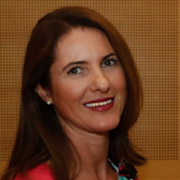
The Baby-Friendly Initiative in Croatia: team work at its best
Irena Zakarija-Grković, MD, FRACGP, IBCLC, PhD - Read moreThe Baby-Friendly Initiative in Croatia: team work at its best
Irena Zakarija-Grković, MD, FRACGP, IBCLC, PhD
After moving from Australia to Croatia in 2004, Dr Irena Zakarija-Grković took up a full time post at the University of Split School of Medicine, where she teaches family medicine, clinical skills, evidence based medicine and breastfeeding medicine, and runs Cochrane Croatia. She is founding and active member of the National Breastfeeding Committee in Croatia; regional consultant for the Baby- Friendly Hospital Initiative in Croatia; president of the Croatian Association of Lactation Consultants, volunteer antenatal breastfeeding course provider and a practicing breastfeeding specialist.
The Baby-Friendly Initiative in Croatia: team work at its best
In this presentation we looked at how 94% of maternity facilities in Croatia became ‘Baby-Friendly’. We analysed the barriers and facilitators encountered upon the way, what is being undertaken to maintain standards and how the BFHI has provided a template for other breastfeeding initiatives in Croatia, such as the Baby-Friendly Community Initiative, Baby-Friendly neonatal units and the Mother and Baby-Friendly Hospital Initiative.
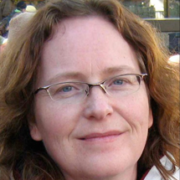
You can’t do that! Keeping your events Code compliant
Jodine Chase - Read moreYou can’t do that! Keeping your events Code compliant
Jodine Chase
Jodine Chase is a public relations and communications consultant specializing in issues and crisis management news analysis. Jodine is a long-time breastfeeding advocate who, as a volunteer, works for many breastfeeding related causes including advocating for the re-establishment of milk banks and amending policies and legislation to protect breastfeeding rights. Jodine serves on the board of her local breastfeeding advocacy group, for the Best for Babes Foundation, and volunteers with ILCA, INFACT Canada, and Friends of the WHO Code. She’s involved in many breastfeeding related events including the Miracle Milk Stroll and the Breastfeeding Challenge.
You can’t do that! Keeping your events Code compliant
You’re planning an event for World Breastfeeding Week. You’ve got a great team and lots of local support. But the gift bag coordinator says a local store wants to include a nipple cream sample. The local chiropractor coupon, is that a no? What about the milk bank info sheet, yes? Someone wants to raffle off a breast pump? Now your head is spinning. Sponsors, giveaways, brochures, how do you deal with it all while ensuring you or your group doesn’t get involved in controversy over unethical marketing and Code violations? This presentation explained how to host a Code compliant event that doesn’t contribute to predatory marketing Booby Traps that erode breastfeeding.
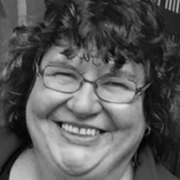
Softening our language
Cynthia Peterson, RM, C&FHN, IBCLC - Read moreSoftening our language
Cynthia Peterson, RM, C&FHN, IBCLC
Cynthia Peterson is a mother, grandmother, midwife, child and family health nurse and IBCLC. Her approach to breastfeeding focuses on supporting mothers with mothering. Breastfeeding her infant is an essential part of mothering.
Softening our language
When talking to mothers as ‘experts’ we tend to use very technical ‘abrasive’ language. This presentation explored ways we can change our language using a partnership approach.
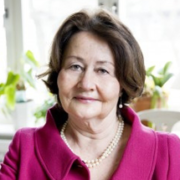
Oxytocin: the biological guide to motherhood
Kerstin Uvnäs Moberg, MD, PhD - Read moreOxytocin: the biological guide to motherhood
Kerstin Uvnäs Moberg, MD, PhD
Dr Kerstin Uvnäs Moberg got her MD and PhD in Pharmacology at the Karolinska Institutet in Stockholm. She has been employed as a full professor of physiology at the University of Agriculture in Uppsala, Sweden. She has worked with research linked to the physiology of labor and breastfeeding for more than 30 years. The focus of the research has been on the role of oxytocin and stimulation of sensory nerves during labor, skin-to-skin contact after birth and during breastfeeding. She has studied the physiological mechanisms involved in birth, skin-to-skin contact and breastfeeding and also the short and long term physiological and behavioral maternal adaptations induced in these situations. She has worked with animal experiments and performed clinical studies in humans. She has written more than 450 original articles, and tutored more than 30 doctorial students. She has also written 5 books.
Oxytocin: the biological guide to motherhood
This presentation discussed Oxytocin, its chemistry, its distribution and its effects. Including the role of oxytocin during breastfeeding for: milk let down and milk production, stimulation of function of the the function of the gastrointestinal tract, anti-stress effects, maternal caring and defensive behavior and increased ability for calm social interaction. The role of suckling versus skin-to-skin contact was highlighted and short and long term effects were described.
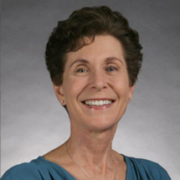
The sacred hour: uninterrupted skin to skin immediately after birth
Raylene Phillips, MD, IBCLC, FABM, FAAP - Read moreThe sacred hour: uninterrupted skin to skin immediately after birth
Raylene Phillips, MD, IBCLC, FABM, FAAP
Dr Raylene Phillips attended medical school at University of California, Davis. She completed her pediatric and neonatology training at Loma Linda University Children’s Hospital in Loma Linda, CA where she is an attending neonatologist. She is also Director of Nursery & Neonatology at Loma Linda University Medical Center-Murrieta. Dr Phillips is an International Board Certified Lactation Consultant, a Fellow of the Academy of Breastfeeding Medicine, and is the current President of the National Perinatal Association. Her primary areas of interest are mother-baby attachment, breastfeeding education and support, and Family-Centered Neuroprotective Care of babies in the NICU.
The sacred hour: uninterrupted skin to skin immediately after birth
How a baby is welcomed into the world matters! Healthy newborn infants belong with their mothers. Being skin to skin with mother supports physiologic stability during the transition to life outside the womb. Mother’s chest is where newborns feel most safe and secure and where babies can instinctively find the breast on their own for their first feeding. Separation from mother induces high levels of stress in the newborn with both short- and long-term consequences. This presentation described the theory and practice of providing uninterrupted skin to skin for newborns immediately after vaginal and cesarean births. Practical tips for training birthing center staff were provided.
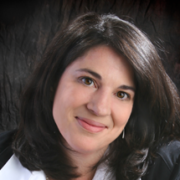
Enhancing the first relationship: breastfeeding as a protective factor in infant mental health
Jill Wodnick, MA, CLC, LCCE, IMH-E - Read moreEnhancing the first relationship: breastfeeding as a protective factor in infant mental health
Jill Wodnick, MA, CLC, LCCE, IMH-E
Jill Wodnick is a national speaker on giving birth, being born, breastfeeding & infant mental health at Montclair State University’s Center for Autism & Early Childhood Mental Health. She has led workshops for nurses, physicians, community health workers and hundreds of expectant parents and ran an innovative urban community doula program to reduce perinatal disparities among Medicaid and WIC enrolled women. She was the Expert Doula for Pregnancy Magazine, Destination Maternity’s website and the PBS program “Real Savvy Moms” and has published numerous articles for International Doula Magazine. Jill now focuses on weaving birth and breastfeeding support for federal birth to three home visitation programs with an emphasis on health literacy, increasing expressive language, infant mental health and breastfeeding’s role in social determinants on health. Jill can be found singing, drumming and brewing nourishing herbal infusions.
Enhancing the first relationship: breastfeeding as a protective factor in infant mental health
Infant Mental Health (IMH) is an interdisciplinary field concerned with the optimal physical, social, emotional and cognitive development of the human infant within the context of the family. This webinar used key concepts in infant mental health plus the recognition of breastfeeding disparities to document unique impact of breastfeeding on children’s health and wellbeing.
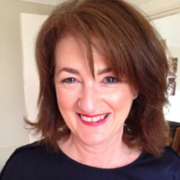
An exploration of the experiences of mothers as they suppress lactation following late miscarriage, stillbirth or neonatal death
Denise McGuinness, RGN, RM, BMS, MSc, IBCLC, PGrad Dip Clinical Health Sciences Education - Read moreAn exploration of the experiences of mothers as they suppress lactation following late miscarriage, stillbirth or neonatal death
Denise McGuinness, RGN, RM, BMS, MSc, IBCLC, PGrad Dip Clinical Health Sciences Education
Denise McGuinness is a Clinical Midwife Specialist (Lactation) at The National Maternity Hospital, Dublin and a Clinical Tutor in Midwifery at The School of Nursing and Midwifery, Trinity College Dublin. In 2014, Denise was awarded Research Paper of the Year at The Irish Health Care Awards for her paper An exploration of the experiences of mothers as they suppress lactation following late miscarriage, stillbirth or neonatal death which was written following her MSc Research on this topic. Denise subsequently received The CJ Coleman Research Award from The Irish Nurses and Midwives Organisation, Dublin. Denise has recently received a Clinical Research Fellowship to undertake a systematic review of neonatal palliative care.
An exploration of the experiences of mothers as they suppress lactation following late miscarriage, stillbirth or neonatal death
This presentation explored the experiences of 15 bereaved mothers as they suppressed lactation following late miscarriage, stillbirth or neonatal death. Recommendations for improved practice were outlined. A breast care leaflet and post-natal leaflet for bereaved mothers were also introduced.
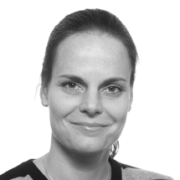
Separation and closeness experiences in the neonatal environment
Anna Axelin, RN, PhD - Read moreSeparation and closeness experiences in the neonatal environment
Anna Axelin, RN, PhD
Dr Anna Axelin’s academic career has included conducting quantitative and qualitative research in national and international multidisciplinary research groups. In the Academic year 2011-2012, she joined the faculty of Department of Family Health Care Nursing in University of California San Francisco for her post-doctoral research. Since fall 2012 she has worked as a university research fellow in the Department of Nursing Science at University of Turku. In addition to her academic career, she has ten years experience as a NICU nurse.
In addition to neonatal pain, Dr Axelin’s research interests include family-centered care, sleep in neonates, and the use of IT tools in implementation research. She does her research in close collaboration with researchers from Nordic countries (PEARL research group), Europe (SCENE research group), and North-America. Since June 2015 Dr Axelin has served as the Coordinator of the SCENE research group.
Separation and closeness experiences in the neonatal environment
This presentation described three study designs measuring and exploring physical and emotional closeness during neonatal care 1) the International Closeness Survey, 2) the Emotional Closeness Project, and 3) the HAPPY study. The studies were conducted by the Separation and Closeness Experiences in the Neonatal Environment (SCENE) research group which is a multi-disciplinary group of international professionals who are undertaking research into why parent-infant physical and emotional closeness varies in neonatal units, within and between countries. This presentation also introduced ways to study parent-infant closeness which is a crucial promoting factor for breastfeeding.
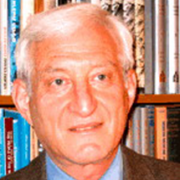
The late preterm infant: a challenge for successful breastfeeding
Arthur I Eidelman, MD, FABM, FAAP - Read moreThe late preterm infant: a challenge for successful breastfeeding
Arthur I Eidelman, MD, FABM, FAAP
Dr Arthur I Eidelman received his MD degree from the Albert Einstein College of Medicine and trained in Pediatrics and Neonatology at the Yale University School of Medicine. In 1978 he moved to Israel and established the first Department of Neonatology in Israel and served as the first President of the Israel Neonatal Society, as Founding Father of the Israel Board of Neonatology. Ultimately, Dr Eidelman became Chairman of the Department of Pediatrics at Shaare Zedek Medical |Center and Professor of Pediatrics at the Faculty of Heath Sciences of the Ben Gurion University of the Negev, the Hebrew University School of Medicine. Dr Eidelman has authored over 200 peer reviewed articles, monographs, and textbooks in the field of Pediatrics and Neonatology with a special emphasis on issues related to infection, breastfeeding, nutrition, infant neurobehavioral development and medical ethics. Dr Eidelman served as the International Editor of The Journal of Perinatology,( the official Journal of the Section of Perinatal Medicine of the American Academy of Pediatrics 9AAP) ,as a member of the Medical Advisory Board of La Leche League International, as past Chairman of the Policy Committee of the Section of Breastfeeding of the AAP and is a past President of the Academy of Breastfeeding Medicine (ABM). He is the lead author of the 2012 AAP Policy Statement: Breast Feeding and the Use of Human Milk. Since January 2015 he serves as the Editor in Chief of Breastfeeding Medicine, the official journal of ABM.
The late preterm infant: a challenge for successful breastfeeding
Infants born between 34-36+6 weeks gestation are a particular challenge for the establishment of successful breastfeeding. These infants, termed the “late preterm” have a combination of a poorly developed motor system, immature physiologic and metabolic processes and associated clinical diseases. They are at risk for low blood sugar, increased degrees of jaundice, temperature instability and excessive weight loss and dehydration. All these factors combine to present major impediments to breastfeeding. The presentation focused on when and how to identify these problems and proscribed techniques and protocols for managing these infants who all too often fall between the cracks.
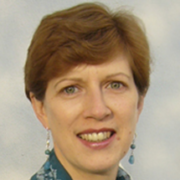
Baby-led weaning: Introducing solid foods the way babies would choose
Gill Rapley, PhD, MSc, RHV - Read moreBaby-led weaning: Introducing solid foods the way babies would choose
Gill Rapley, PhD, MSc, RHV
Dr Gill Rapley has worked as a public health nurse and a midwife. She has also been a voluntary breastfeeding counsellor, and was a lactation consultant from 1994 to 1999. From 1996 to 2010 she worked for the UNICEF UK Baby Friendly Initiative, helping hospitals and health professionals to implement best practice for breastfeeding mothers and babies. Dr Rapley gained a Master’s degree in 2005 and a PhD in 2015, both for research into the introduction of solid foods. She is currently a part-time university lecturer and writer on infant feeding. She is credited as the originator of the term ‘baby-led weaning’ and as the pioneer of this approach worldwide. Dr Rapley is married with three grown-up children and lives in the UK.
Baby-led weaning: Introducing solid foods the way babies would choose
This presentation explained what is meant by ‘baby-led weaning’ (BLW) and described some of the benefits of this approach – known and suspected – for babies and their families. Drawing on her recent research, Dr Rapley will showed how BLW constitutes a natural progression from breastfeeding and explore what makes it the way babies would choose to begin their transition to family meals. Some tips were provided for implementing BLW, and for supporting parents who are following it, along with some food for thought to take away.
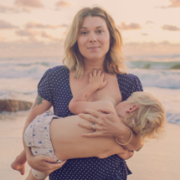
Exclusively breastfeeding triplets – case studies
Meg Nagle, IBCLC - Read moreExclusively breastfeeding triplets – case studies
Meg Nagle, IBCLC
In between breastfeeding her youngest boy, chasing after her oldest two boys, blogging and occasionally sleeping… Meg works with women to help them reach their breastfeeding goals! Her background is in counselling and sexual health. She was a La Leche League Leader (breastfeeding counsellor) for seven years before becoming an International Board Certified Lactation Consultant. Meg is the author of, Boobin’ All Day… Boobin’ All Night. A Gentle Approach To Sleep For Breastfeeding Families. She has published articles in numerous parenting magazines and websites. She has also recently finished being filmed for a short documentary, Lactaboobiphobia which is based on one of her blog posts and will be released in early 2016.
Exclusively breastfeeding triplets – case studies
Exclusively breastfeeding triplets can seem to many an unattainable goal, yet two women in Australia have not only reached their goals of breastfeeding their triplets exclusively, but have surpassed their original expectations of what they could achieve. This presentation focused on two case studies and includes pictures of them breastfeeding their triplets in various positions. Both women have been successful at reaching their breastfeeding goals and are currently breastfeeding past toddlerhood, due to many factors including the woman’s strong desire and motivation to breastfeed; how their births influenced their breastfeeding experiences; what effect the level of support had on reaching their goals; and their own beliefs as to why they feel they have been successful. The presentation included how we as health care providers can best support women with multiples to reach their breastfeeding goals.
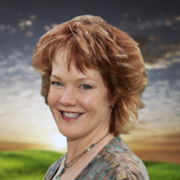
Breast milk is brain juice
Theresa Nesbitt, MD - Read moreBreast milk is brain juice
Theresa Nesbitt, MD
“Dr Theresa” is an Obstetrician-Gynecologist with special training in Maternal Fetal Medicine. She promotes health and wellness for women with a focus on mothers. She has a particular interest in brain growth and development. Dr. Theresa is Director of Family Health Coaching, editor of Babies and Breastfeeding Magazine and author of Evolutionary Eating: How We Got Fat and 7 Simple Fixes. Her newest book is Building a Baby Brain Bite by Bite – How to Eat Before, During and After Pregnancy. She is also co-author (with Nancy Mohrbacher IBCLC, FILCA) of the Natural Breastfeeding Program – The Solution to Successful Start.
Dr Nesbitt developed an interest in breastfeeding because she observed that although many pregnant women plan to breastfeed, they are not really prepared to do so. Her interest in brain health, nutrition and developmental kinesiology have helped her to look at breastfeeding and human milk from a new perspective.
Breast milk is brain juice
Mammals were able to build bigger brains by virtue of the placenta and the mammary glands. These organs are able to concentrate brain building nutrients and transfer them to the fetus or neonate. Human milk is specifically designed to promote brain growth and development.

